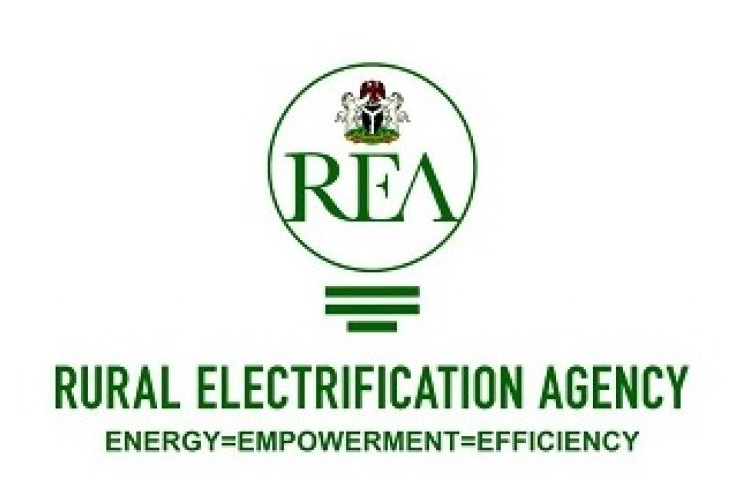Connects 1.4m unserved, underserved

The Rural Electrification Agency, (REA), has disclosed that it spent a total of N28.7 billion for the implementation of capital projects in 2023.
The agency also said that over 1.4 million people benefited from its implementation of the 2023 capital projects through several solar energy programmes initiated by the federal government.
Managing director, REA, Abba Aliyu Abubakar, speaking on the implementation of the 2023 capital project of the agency, in Abuja, said the N28.7 billion was spent out of the N31.7 billion total allocation to it during the year.
“In total, out of the 2023 capital implementation we have completed projects of over N28.7 billion. Out of the N31.7 billion allocated to REA we still have about N3.3 billion projects that are ongoing, which we hope to complete in the next two months,” Abubakar said.
Giving a breakdown of the capital expenditure for the year, the MD said that N446 million was utilised in deploying mini-grids that would electrify electric vehicles across the six different geopolitical zones in the country which is a programmatic event that has been tested by REA and will be scaled up. Also N227 million was used for consultancy.
“Additionally, we have utilised N6.3 billion for grid extension. This will focus on extending the grid and deployment of transformers at the distribution level to connect communities within the country to the national grid.
“We have also spent about N131 billion for the deployment of solar home systems across the country. We have also spent N626 million for the deployment of different mini-grids across the country.
Continuing, Abubakar said that N499 million was spent for the deployment of solar street lights across the country, while N2.02 billion was spent for the deployment of solar pumping irrigation pumps across the country.
“These mini-grids specifically focus on enhancing electric vehicle deployment. Others focus on energising agricultural clusters across the country. These solar street lights were specifically deployed in areas that are facing security challenges. So we deployed these solar street lights to enhance security in those areas.
He explained that the pumps were deployed and given to over one thousand farmers across the country to enhance farming activities.
The REA boss also stressed that the distribution of the projects covered the entire six geopolitical zones as well as the 36 states and Abuja.
“It’s also interesting to note that the intervention of REA in 2023 covered the entire country. There’s no single state within the country that was not covered with our projects under the 2023 capital implementation,” Abubakar said.
The 2023 capital project implementation report showed that in all, the agency said it made 5,500 connections across the six geo-political zones of the country, bringing electricity to unserved and underserved communities and facilities.
The agency deployed 2,631 standalone solar home systems, 18,670 solar street lights, 15 solar mini-grids, and containerized mini-grids, 1,666 solar-powered irrigation pumps and 106 transformers with a capacity of 37,800KVA.
“All these are being equitably deployed across all the six geopolitical zones”, the MD added, pointing out that the “implementation of the 2023 capital projects has so far enabled the REA to exploit a range of energy access solutions targeted at delivering sustainable energy to the unserved and underserved, while alleviating energy poverty and its resultant effects on socio-economic growth.”
Speaking on funding, Abubakar explained that the agency has four different sources of funding including the yearly annual budgetary allocation from the federal government.
“The other three are from the DFI funding which is the bilateral agreement that the Federal Government of Nigeria enters with the World Bank and African Development Bank. And REA has a project management unit specifically for the implementation of this project.
“We are about to complete the implementation of $550 million Nigeria Electrification Project, and have secured additional funding of $750 million to start the implementation of the DARES (distributed assets renewable energy scale up). The DARES project is the biggest off-grid public sector funded project in the entire world.
“The target is to electrify 17.5 million Nigerians out of the 85 million that do not have access to electricity. We are very clear on how we are going to do that. Three million Nigerians will be electrified using the isolated mini-grid, 1.5 million Nigerians with inter-connected mini-grid and about 12.5 Nigerians will get main grid and solar home systems”, he stated.
The REA boss explained the agency also gets its funding from the electricity market through all fines imposed by the Nigerian Electricity Regulatory Commission, NERC, and a percentage of excess revenue accruing to NERC that is remitted to the Rural Electrification Fund.
“The fourth source of funding is the funding we get from the international development agencies through grants”, he added.
On her part, the executive director of the Rural Electrification Fund, Doris Udoh, explained that to ensure that the projects were sustainable, the beneficiaries would pay a small amount as tariff to maintain the assets.
Also speaking, the executive director, Technical Services, REA, Umar Abdullahi Umar said more people will be captured in the 2024 capital projects because its budget has quadrupled.
Copied
